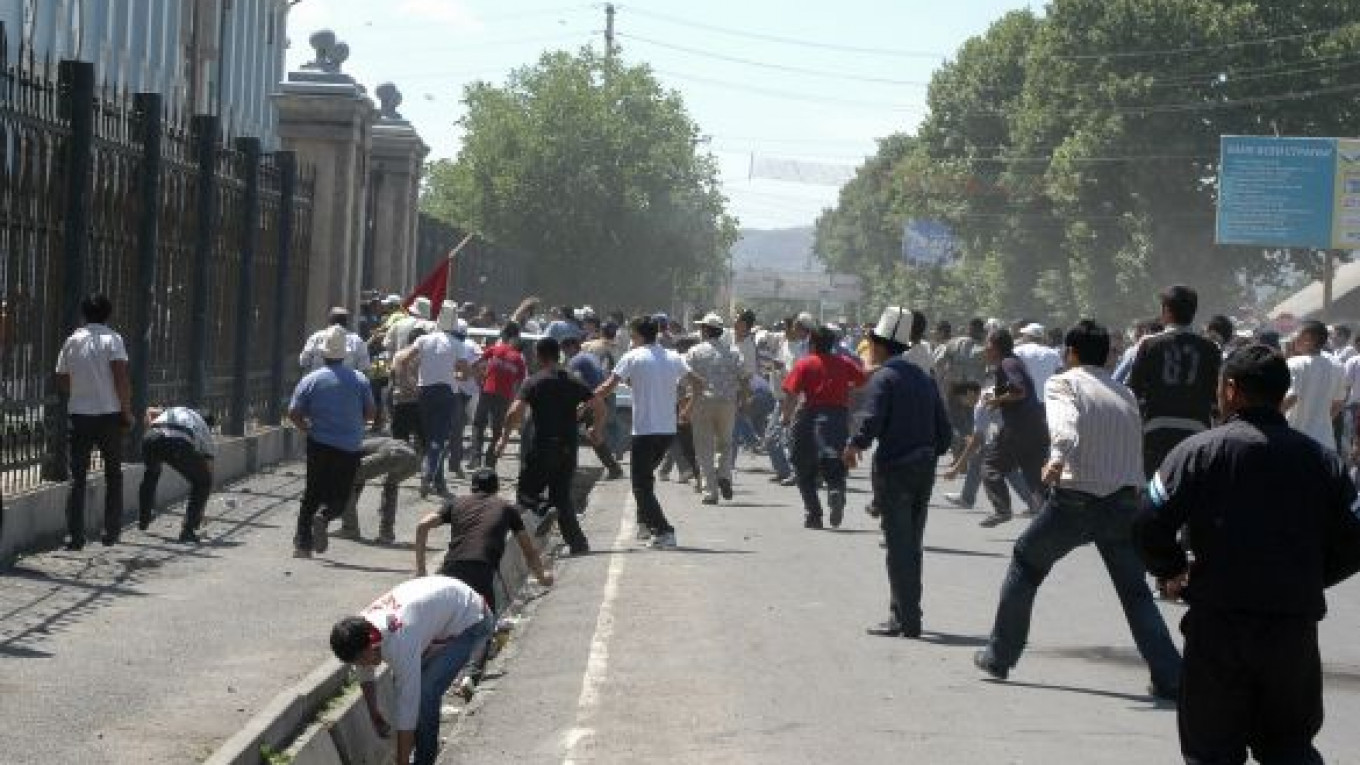BISHKEK, Kyrgyzstan — Kyrgyz security forces may have been complicit in ethnic clashes that killed 470 people last year, an independent commission said Tuesday, urging the government to investigate the military's role in the violence.
The Kyrgyzstan Inquiry Commission, chaired by Finnish politician Kimmo Kiljunen, said certain attacks on Uzbek neighborhoods of Osh last June, if proven beyond doubt in a court of law, would amount to "crimes against humanity."
Kyrgyzstan's government rejected the findings of complicity by its security forces. It said the report was one-sided and there was insufficient evidence of crimes against humanity.
Last year's violence between ethnic Kyrgyz and Uzbeks in southern Kyrgyzstan was the worst unrest in years to hit Central Asia.
The independent commission, an initiative by Nordic countries accepted by Kyrgyz President Roza Otunbayeva, was mandated by the Kyrgyz government to investigate the violence.
"Had the military been properly instructed and deployed, it would have been possible to prevent or stop the violence," its report said. "The failure of the security forces to protect their equipment against seizure raises questions of complicity."
The violence saw Kyrgyz battle ethnic Uzbeks in and around the city of Osh. The report said Uzbeks made up nearly 75 percent of the 470 people killed, and a "disproportionately high number" of Uzbek-owned properties were destroyed.
It quoted Health Ministry data showing Kyrgyz accounted for the majority of the 1,900 people treated in hospital. More than 400,000 people were displaced by the clashes.
The violence erupted two months after President Kurmanbek Bakiyev was ousted in a popular revolt, creating what the report called a "power vacuum." Political rivalries and fragile state institutions contributed to "ethno-nationalism," it said.
"Political fanaticism misused ethnicity with tragic consequences," said Kiljunen, the commission's chairman and the OSCE Parliamentary Assembly's special representative for Central Asia.
The seven-member commission nevertheless said it did not consider the violence as war crimes or genocide.
The report said the presence of "expertly driven" armored vehicles was a sign of military involvement in the attacks: "Such discipline and order is not commensurate with the normal actions of spontaneously rioting civilian crowds," it said.
In its response, the government said the commission's report displayed "an overwhelming tendency that only one ethnic group has committed crimes." It said "some attributes" of crimes against humanity had taken place but that there had been no "widespread or systematic attack" against a single ethnic group.
"Both sides were armed, committed violence against each other and suffered casualties," it said. It laid part of the blame on followers of Bakiyev, the deposed president, and on criminal groups vying for control of drug trafficking routes.
"The provisional government which took upon itself the responsibility for the country in such a dramatic and volatile period was still faced with dealing with resistance from the previous regime," the government said.
A Message from The Moscow Times:
Dear readers,
We are facing unprecedented challenges. Russia's Prosecutor General's Office has designated The Moscow Times as an "undesirable" organization, criminalizing our work and putting our staff at risk of prosecution. This follows our earlier unjust labeling as a "foreign agent."
These actions are direct attempts to silence independent journalism in Russia. The authorities claim our work "discredits the decisions of the Russian leadership." We see things differently: we strive to provide accurate, unbiased reporting on Russia.
We, the journalists of The Moscow Times, refuse to be silenced. But to continue our work, we need your help.
Your support, no matter how small, makes a world of difference. If you can, please support us monthly starting from just $2. It's quick to set up, and every contribution makes a significant impact.
By supporting The Moscow Times, you're defending open, independent journalism in the face of repression. Thank you for standing with us.
Remind me later.






